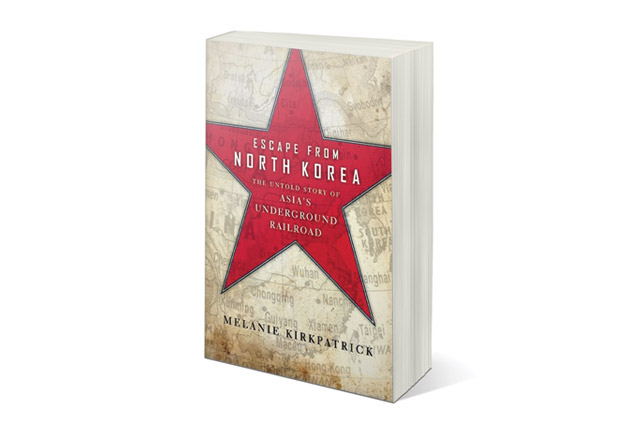In The Lost History of Christianity, Philip Jenkins makes an important, and humbling, observation: Just because Jesus' church will survive through all time does not mean it will thrive in all places, or at all times. Take, for instance, the North Korean capital of Pyongyang, known during the 1940s as the "Jerusalem of the East."
Escape from North Korea: The Untold Story of Asia's Underground Railroad
Encounter Books
376 pages
$14.35
In Escape from North Korea: The Untold Story of Asia's Underground Railroad (Encounter), Hudson Institute senior fellow Melanie Kirkpatrick labors to set the once-holy city's record straight. Banding together dozens of personal accounts of survivors who have fled North Korea, she tells a story of bravery, luck, disappointment, and death; of Christian activists and money-hungry brokers united behind a simple Mosaic invocation: Let my people go.
Until the mid-1990s, there wasn't much to be gained by rushing the 880-mile border with China. With borders sealed and news of the outside world scarce, few ordinary North Koreans escaped. But when a crippling famine struck and a sudden Chinese prosperity beckoned, the trickle of refugees swelled to nearly half a million, its path smoothed by a relaxation of restrictive internal policies. Freedom, religious or otherwise, never entered their political vocabulary. Most fled simply out of hunger.
Since the Korean War, fewer than 25,000 refugees have reached safety in South Korea. Yet North Korea receives less international attention than other failed states (notwithstanding accounts like this year's Escape from Camp 14: One Man's Remarkable Odyssey from North Korea to Freedom in the West). It does not have the status of an "Asian Darfur." Nor is the degradation of its people widely understood, even among South Koreans or Korean Americans. Culpability for this apathy and ignorance, argues Kirkpatrick, belongs at least partly to South Korean presidents Kim Dae-jung and Roh Moo-hyun, whose "Sunshine" policy (1998-2008) muted official criticisms of the Pyongyang regime in an effort to build good will. Activists and aid workers now call this period the "Lost Decade."
Chinese intransigence makes the situation still worse. In contravention of international law, it remains official Chinese policy to hand North Korean refugees back to North Korea, where they face torture, incarceration, and possibly death. International options remain limited so long as China sustains its support for what, even by its own estimates, is an increasingly unstable and erratic government. Chinese interest is in stability. An Arab Spring in North Korea could unleash a flood of refugees and a civil war into which it would almost inevitably be drawn.
China, then, prefers Pyongyang's instability and brutality to the unknown consequences of collapse. Thus is the Jerusalem of the East condemned to swelter under a largely invisible repression, its citizen-prisoners denied religious, economic, and associative freedoms.
Escape from North Korea reaches us at a timely moment, marked by rising awareness of the regime's atrocities. For students of the Korean Peninsula, who know well the grim statistics, here is a rare book that puts human faces on the numbers, a lamentation over policies and duplicities that have haunted a people terribly divided.
Kirkpatrick, however, seems to write mostly for an American audience. It is Americans, and American Christians especially, who have begun and must continue to answer the call of their North Korean brothers and sisters. And the American state, weakened though it may be, still stands as one of the best hopes of those oppressed above the 38th parallel, where there remains—too often overlooked—a Jerusalem lost, pleading to be found.
Robert Joustra, an editor with Comment magazine, lectures in international studies at Redeemer University College in Ontario.











